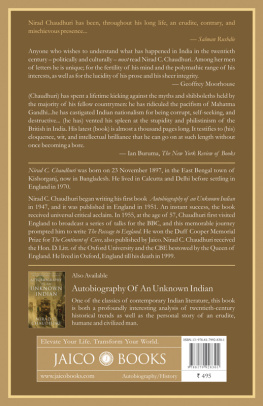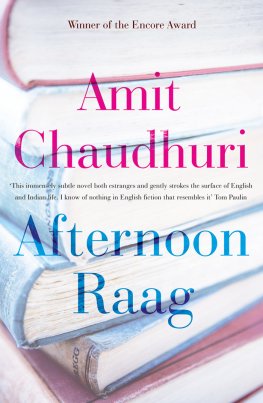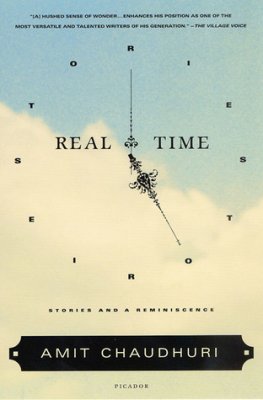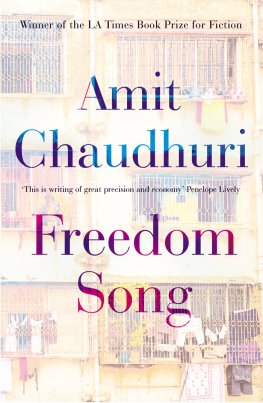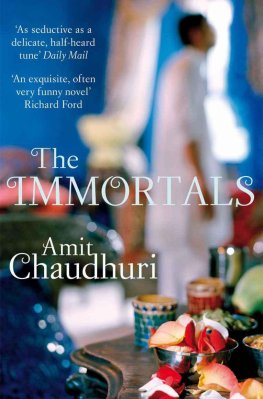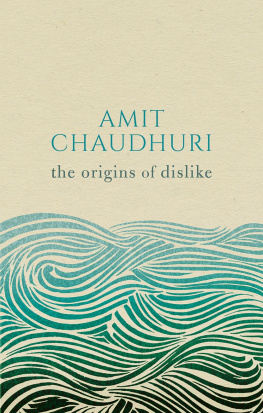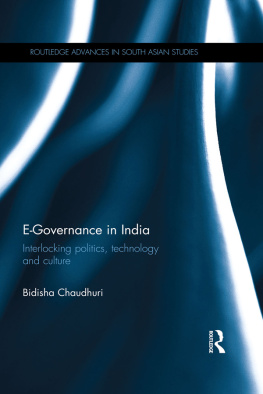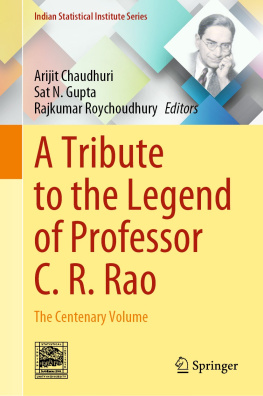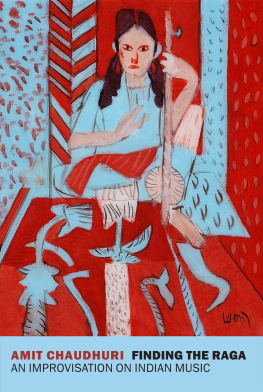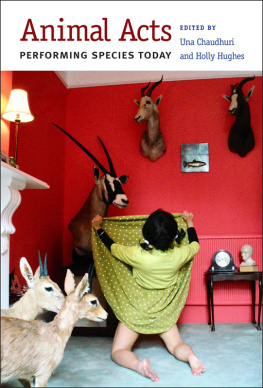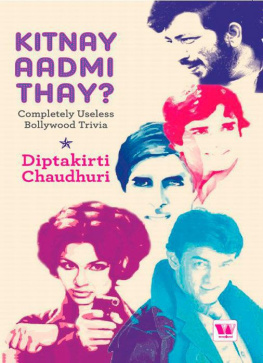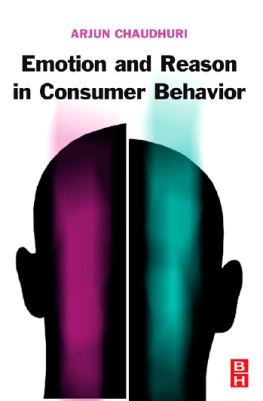Autobiography
of an
Unknown Indian
Part II
Thy Hand, Great Anarch!

India 1921- 1952
This book has three morals for
three kinds of men,
to wit: for rulers Nous courons sans souci dans le prcipice,
aprs que nous avons mis quelque chose
devant nous pour nous empcher de le voir. Pascal for individuals II arrive quelquefois des accidents dans la
vie do il faut tre un peu fou pour se
bien tirer. La Rochefoucauld [Not sometimes. But always for me.] for writers Quand on voit le style naturel, on est tout
tonn et ravi, car on sattendait de voir
un auteur, et on trouve un homme. Pascal |
Published by Jaico Publishing House
A-2 Jash Chambers, 7-A Sir Phirozshah Mehta Road
Fort, Mumbai - 400 001
www.jaicobooks.com
Prithvi N. Chaudhuri
AUTOBIOGRAPHY OF
AN UNKNOWN INDIAN: PART II
ISBN: 978-81-7992-830-1
First Jaico Impression: 2008
Third Jaico Impression: 2011
No part of this book may be reproduced or utilized in
any form or by any means, electronic or
mechanical including photocopying, recording or by any
information storage and retrieval system,
without permission in writing from the publishers.
Printed by
Anubha Printers, B-48, Sector-7, Noida
Explanation about Indian names
An explanation on this score is called for because I have adopted a manner which may give rise to confusion. That is about Bengali names only. These are exactly like European names, i.e. one or two personal names followed by the surname, which is hereditary. But colloquially the Bengalis do not employ the surname. Instead, they use the personal name, with or without an honorific suffix. For instance, equals or elders would address or mention me only as Nirad, but where a respectful manner is expected I would be both referred to and spoken to as Nirad Babu. So, I have referred to those Bengali public figures whom I knew as so and so Babu, e.g. Subhas Babu or Sarat Babu. In the index all Bengali names are cross- referenced, both under the surname and personal name.
The manner over the rest of India has in recent times become chaotic, although strictness was the rule traditionally. Therefore in mentioning non-Bengali Indians I have used the form either used by the holders or by the public generally. With some figures, it is simply the popular honorific title, e.g. Mahatmaji for Gandhi.
In case of doubt the reader should turn to the index where everyone mentioned by me is formally identified.
Acknowledgements
Acknowledgements I have to make for this book have to be on the same lines as for my life as lived to this day: neither would have been possible without generous help voluntarily given by those who saw something in me. Here I mention only those who helped me to write the book, and of course those who enabled me to survive equally stand behind it. My very first obligation is to Professor Edward Shils of Chicago and Cambridge, who had so much confidence in me and such eagerness to see the continuation of my autobiography, that he gave me a large sum of money from his own resources either as a loan or as a gift, so that I could stay in England to write the book. I regard this as a loan, but it still remains a gift.
After him I have to mention Christopher MacLehose who, when with the British publishers Chatto & Windus, of his own initiative, offered to enter into a contract and give an advance for the book. That was in 1979, and it enabled me to begin the book. After Mac Lehose, Hugo Brunner took over at Chatto and helped and encouraged me in every way possible. Apart from what help he himself gave, he approached others for me, and as a result I got grants from the Arts Council as well as from the Royal Literary Fund. I also got a grant from the Leverhulme Trust. For these, I would record my deep sense of gratitude to these patrons of literature, and more especially in this connection I would thank Mr John Gross and Mr Victor Bonham-Carter. Hugo Brunner found to his dismay that instead of giving short measure for the money received, I gave overweight, which in these days of publication is worse than defaulting. But the present management of Chatto faced even this task, which showed not only courage, but also literary idealism.
I have to thank Mrs Elsie Summers for preparing the final typescript of the book from pure friendship; Century Hutchinson Ltd for permission to quote from Rufus Isaacs by the Marquis of Reading, Eyre Methuen Ltd for permission to quote from The Life off. E. Smith by the Earl of Birkenhead and the Rt Hon. Viscount Norwich for permission to quote from his fathers memoirs on Independence for India.
nirad c. chaudhuri
introduction
Apologia pro Biographia sua
This book continues the story of my life and thoughts from the point of time at which it was left in The Autobiography of an Unknown Indian , published in 1951. That was my first book, and in it I gave an account of my childhood and student days which came to an end in 1921, when I was twenty-three years old. How I began to write an autobiography in the middle of 1947, when I was short by six months of being fifty, I shall relate in the last part of this book, which deals with that stage of my life. Here I shall only say that even then it was my intention to bring down the story to 1947, the year of the British withdrawal from India, so that I might conclude it with a decisive historical event and be enabled to give a complete account of the decline and fall of the Indian Empire of Britain. But the narrative of my early life alone had become so long that there could be no question of including what I did and what happened in India after 1921 in the same book.
The contemplated but unwritten part of the story is now offered. But as things turned out, I could not begin it till the spring of 1979, when I was eighty-one, and I have taken more than six years to complete the work. I am formally dating the completion on 23 November 1986, when I have also completed eighty-nine years of my life. I dare not ask even myself what marks age is imprinting on the book. I leave that to be judged by the reader. For myself I shall plead that I have tried as best as I can to forget the lapse of time, and to write the book on the same lines and in the same spirit as its predecessor.
However, even now I have not been able to give the book the end one would expect it to have. Of course, autobiographies cannot have the same logical end as biographies always have. But they are generally brought down to the time when they are written. This book falls short of even that by thirty-two years, for it only covers my working life, which began in 1921 and came to a close at the end of 1952. Since then I have been independent and have lived by my writings. Although this period of my life, too, has had its vicissitudes and has ended by bringing a man who travelled on elephants in his boyhood to England in a jumbo jet to spend his last days there, that part of the story will in all probability never be written.
I shall now explain in what way this book is a sequel to The Autobiography of an Unknown Indian . In spite of its tide, that book was not truly an autobiography. It was a picture of the society in which I was born and grew up. In its preface I set down the purpose I had in mind in writing it. The story I want to tell, I wrote,
is the story of the struggle of a civilization with a hostile environment, in which the destiny of the British Empire in India became necessarily involved. My intention is thus historical, and since I have written the account with the utmost honesty and accuracy of which I am capable, the intention in my mind has become mingled with the hope that the book might be regarded as a contribution to contemporary history.
Next page
